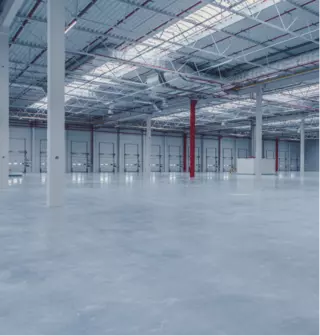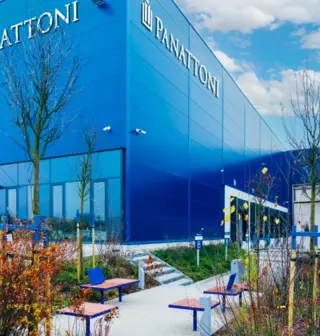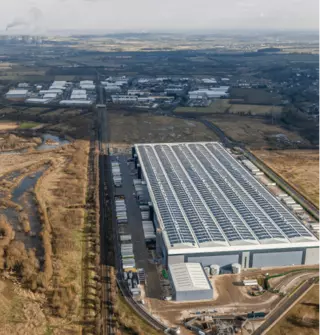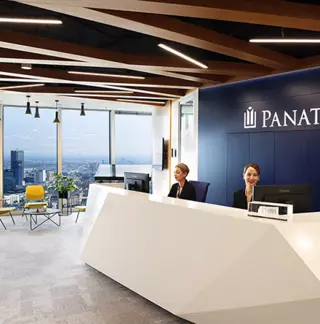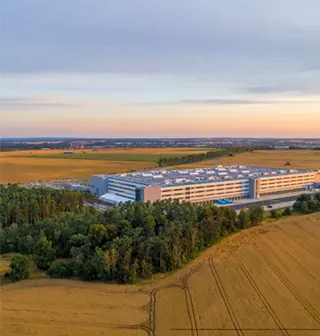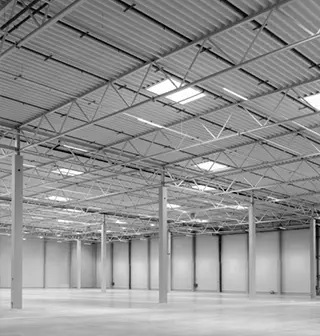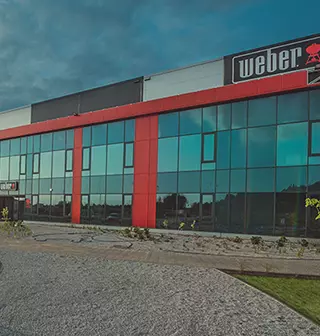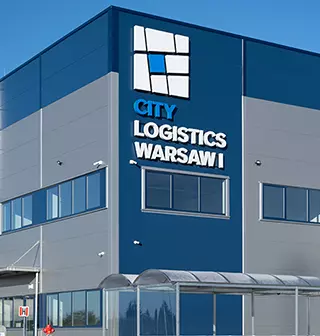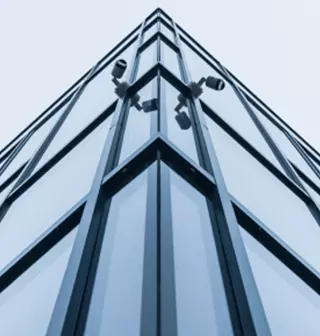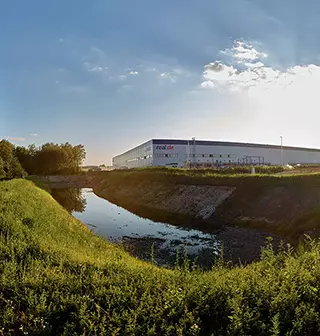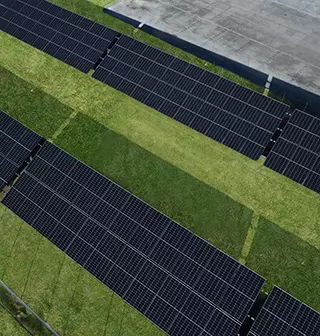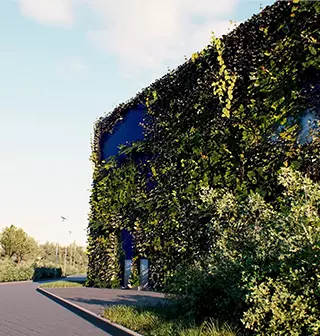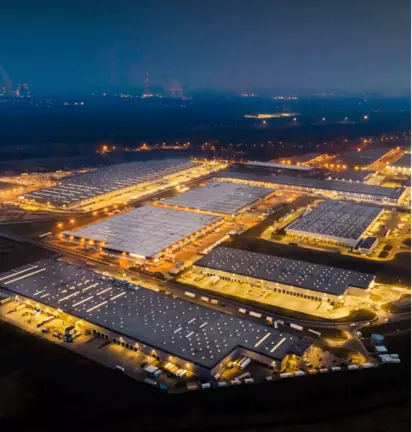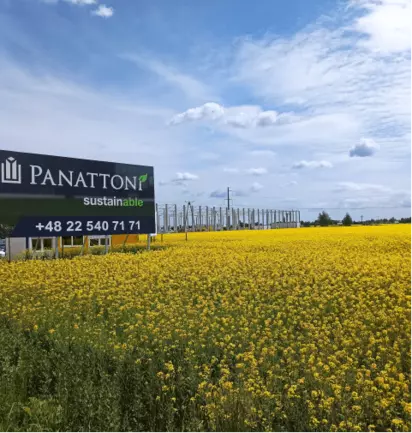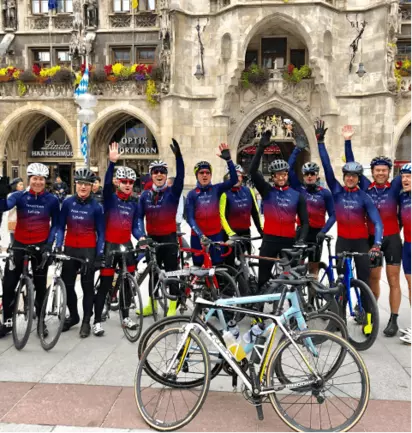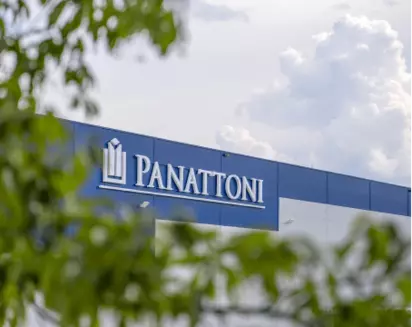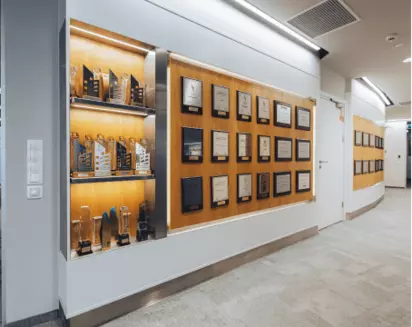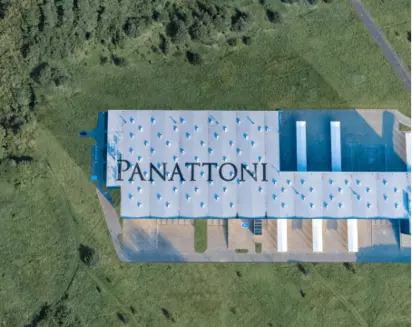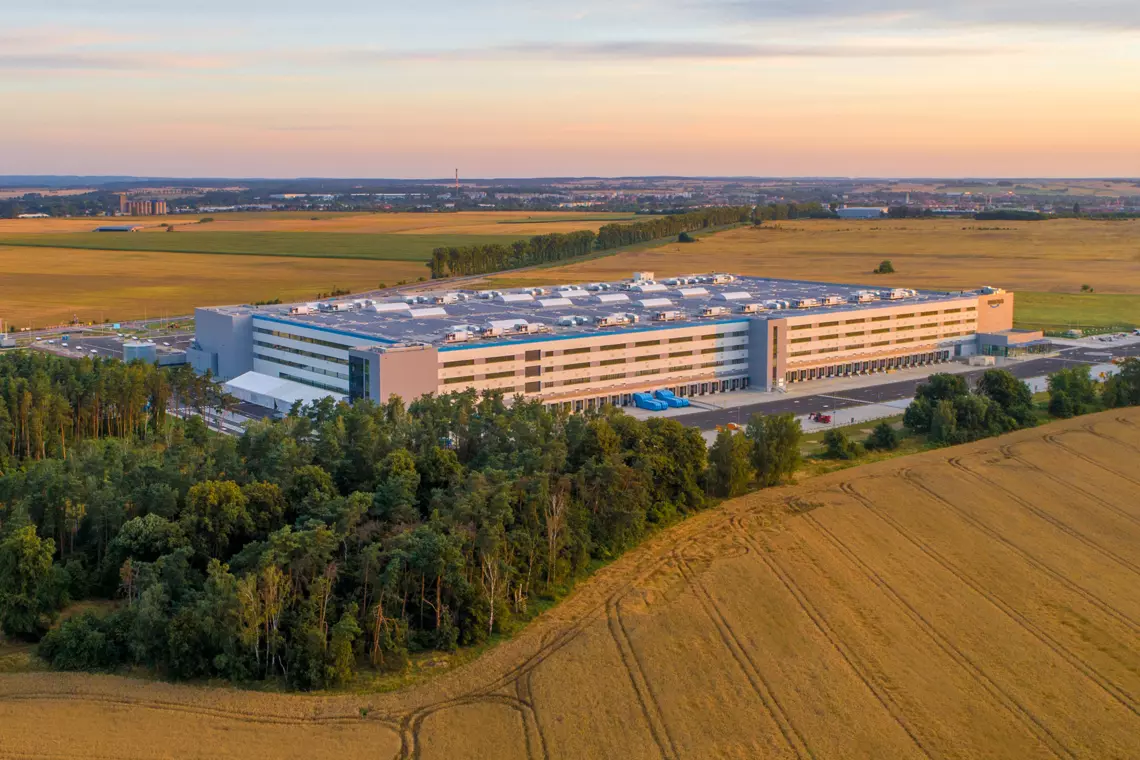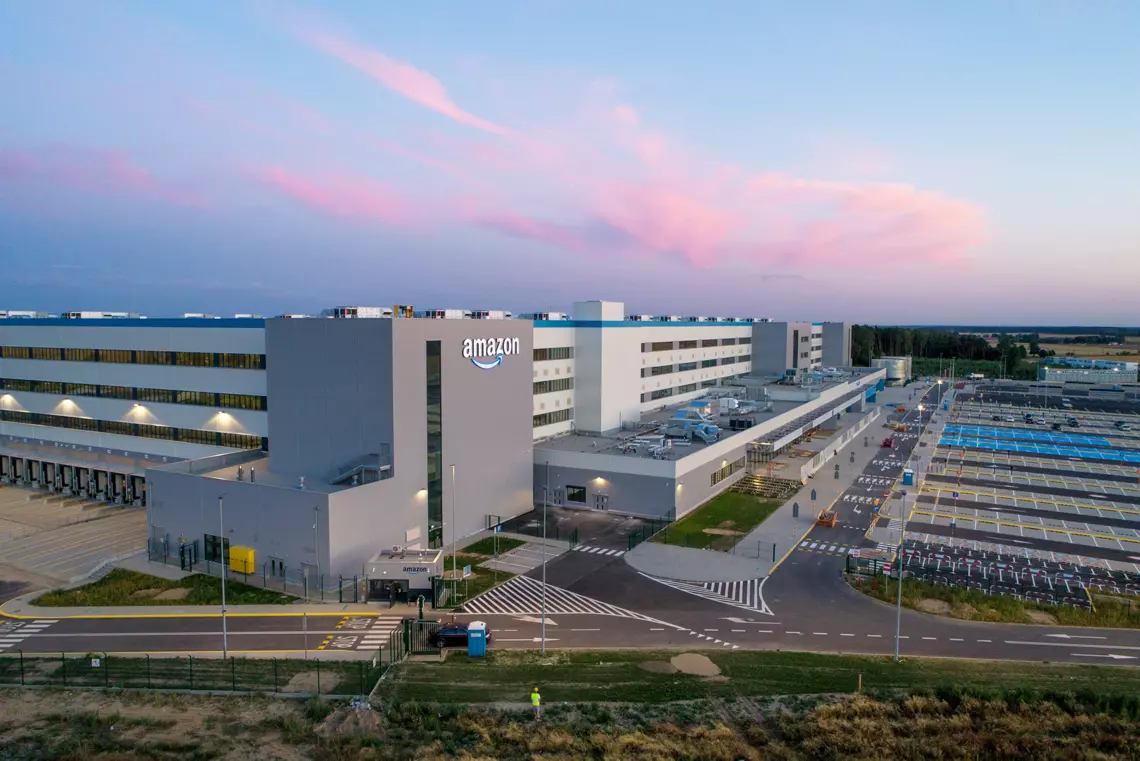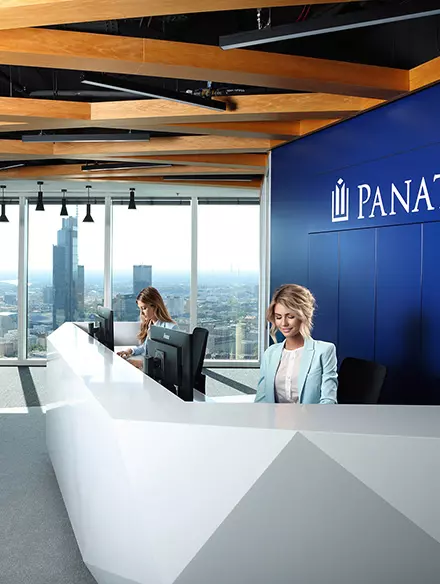Amazon’s premises in Świebodzin, constructed by Panattoni, is the biggest and one of the most sustainable building projects completed in Poland in 2021. The Embodied Carbon Benchmark – the key factor in zero net carbon emissions, which all buildings must achieve by 2050 – has been lowered by approx. 50% in comparison to the reference year. Owing to this fact, Panattoni managed to save the use of 46,868 tonnes of CO2. The sustainable construction process was supported by the efficiency analysis of the delivery of prefabricated elements. The time vehicles spent at the construction sites was reduced to 10 minutes (from 30). The saved 20 minutes translated to less petrol consumed an amount that would equate to a further 24,000 kilogrammes of CO2 emissions!
The investment in Świebodzin with a total area of 200,000 sqm is an example of how Panattoni –an industrial space developer and the leader of the European “Property EU” ranking for the past 6 years – has been efficiently reducing its carbon footprint. CO2 emissions are not only caused by the use of lighting, heating, or cooling in the construction industry. Significant levels of emissions are also produced while excavating the construction site and processing the necessary raw materials to be used in projects. Furthermore, the production and transportation of the prepared construction materials also contribute to the overall footprint
The building industry is responsible for 38% of total global CO2 emissions. 28% of this is released when the building comes into use (operational carbon footprint) with the remaining 10% attributed to excavation, production transportation of construction materials, the building process itself, and demolition (embodied carbon footprint). Without complete decarbonisation of buildings, Europe will never achieve carbon neutrality.
The higher energy efficiency of buildings
Reducing operational carbon footprints brings tangible results that are easy to measure. Reduced energy consumption in a building, directly translates to lower CO2 emissions. All of our new buildings have been BREEAM-certified as “Excellent”. BTS in Świebodzin has achieved such a level and received one of the highest scores in history among industrial real estate in Poland: 76.34%. Meeting strict certification requirements, we have reduced energy and water consumption in this building by 55 %. It helps reduce harmful emissions, brings real savings in the area of water and energy consumption for tenants, and makes it possible to achieve their climate goals, explains Emilia Dębowska, Sustainability Director in Panattoni.
This is the result of using various tools and systems that enable full energy control, monitoring, and management. The building uses LED lights only, which are controlled automatically, as well as a central system for monitoring energy and water consumption and intelligent systems for automatic control of flat roofs. Its glass facades provide offices with natural light and the native vegetation planted around the building does not require watering.
Green energy reduces the operational carbon footprint
Using renewable energy sources is a vital element in the process of carbon footprint reduction in buildings. In 2021 alone, we provided our storage houses, parks and distribution centres with 250,000 MWh of energy from renewable sources. Green energy already powers buildings with a total area of 3 million sqm. This year, we will have increased the amount of energy from renewable sources up to 312,000 MWh, which will reduce emissions by as much as 160,000 tonnes, says Emilia Dębowska. BTS in Świebodzin is equipped with 4,000 solar panels, which, given the low demand for primary energy, means that the annual CO2 emissions have been reduced by 1000 tonnes.
The building’s life cycle
Decarbonization of a building goes far beyond the energy used by the premises. The so-called embodied carbon footprint is related to the whole life cycle of a building: from the production of building materials to transportation, to the process of construction, renovation, alteration, and possible demolition.
Everything starts with a design and at this stage, Panattoni already begins to conduct in-depth analysis and performs building energy modeling using the BIM technology (Building Information Modelling). This allows the building to be created in a virtual world: from the concept to the commissioning. The virtual building possesses all the possible parameters of the building in the real world. It offers the possibility to analyse much more information than a 2D project, e.g. costs, amount of materials, and construction time. It can also detect design flaws and plan the construction process properly, as all of this influences the building’s carbon footprint.
Resources with an ecological stamp
In the design phase of the building in Świebodzin, emissions from the use of building materials used were taken into consideration. While choosing the materials, various environmental certificates from the EMS group (Environmental Management Systems) were considered, such as EPD (e.g.: doors, insulation, plasterboards), FSC (construction wood from legal sources), the producer’s ISO 14001 (e.g.: concrete posts, insulation).
Choosing local producers and materials located in the vicinity of the construction site was also an important factor. By cooperating with a local waste collection company, it was possible to reduce the average distance covered during its transportation to 3.1 km. A special application registering data from all transport operations (number of kilometres, type of vehicle and fuel) made it possible to fully measure the carbon footprint produced during the construction stage.
Life Cycle Analysis (LCA)
The sustainable construction process applied in Świebodzin combined with efficiency analysis of the delivery of prefabricated elements and automatic control allowed to reduce CO2 emissions by 130,550 tonnes, that is by 14.5%. This was made possible by the following:
· optimisation of material transportation and reduction of the average distance covered by delivery vehicles;
· significant reduction of delivery verification time, which reduced the amount of fuel consumed by the vehicles while on standby;
· delivery schedule, which minimised the storage of materials eliminating wear and tear and thus reducing vehicle traffic.
As a result, the building in Świebodzin has a lower Embodied Carbon Benchmark (kg CO2e/m2). It amounts to 251 kg CO2e/m2, with the average equaling 503 kg CO2e/m2. Therefore, the building emits approximately 46,868 tonnes of CO2 less than the reference building.
Prolonging the life of buildings and materials
The construction industry produces 1/3 of the world’s waste and uses half of its (annual)resources. At the same time, it is an area where resource management and circular economy implementation are unusually inefficient. All Panattoni buildings are constructed in accordance with strict environmental guidelines. The whole life cycle of a building, including the possibility to change its function in the future, is taken into consideration. It is like this so that the alteration, modernisation, and conversion or demolition processes is as harmless to the environment as possible. It means designing the building in a way that allows the use of elements made from recycled materials that are easy to dismantle and reuse. The level of recycling in Świebodzin reached 96%.
In fact, recycling at a level of 90% is a common characteristic of the majority of Panattoni’s buildings. It mostly concerns brownfield investments. Demolition materials are treated as semi-finished products and reused during construction or in other processes. Whenever it is possible, we reuse aggregate, for instance, we process concrete and use it in the construction of foundations, explains Norbert Sumisławski, Managing Director of Project Management in Panattoni.
Employing a circular economy concept, we make sure that Panattoni’s buildings are designed, constructed and possibly reused without wasting resources, destroying the environment and damaging ecosystems. At the same time, they need less energy to function. This is proven by measuring the carbon footprint at each stage of the building’s life cycle.
